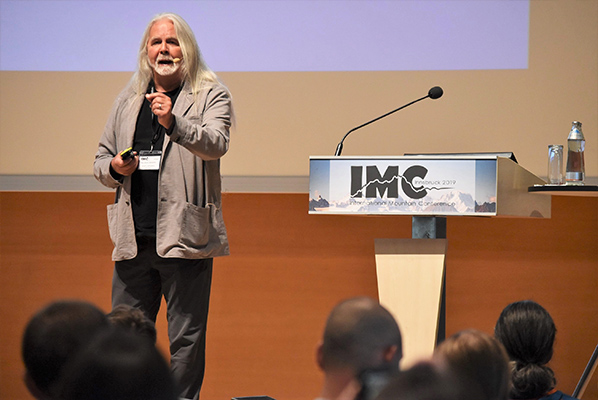Archaeology Professor Mark Aldenderfer ventured to the Austrian Alps recently to deliver a keynote address at the International Mountain Conference in Innsbruck.
Aldenderfer’s presentation, “ The Deep Prehistory of the Human Presence in the World’s Highest Mountains and Plateaus,” traced the expansion of our hominid ancestors into high-elevation environments some 1 million years ago to the settlement of humans in mountainous terrain within the past 40,000 years.
To successfully thrive at elevations beyond 3,000 meters required behavioral as well as genetic adaptations, he said. Things we take for granted — fire and clothing — were critical to these adaptations.
“Mountains have given us challenges, but we’ve been able to adapt to them due to our behavioral flexibility and genomes,” said Aldenderfer, who is a John D. and Catherine T. MacArthur Endowed Chair.

Connecting human history to current discussions on climate change, Aldenderfer said it’s important for climate scientists to bear in mind the deep history of humans living in high-elevation environments.
Small farmers who have lived in the Himalayas for thousands of years, for example, are being impacted by changing cycles of precipitation and temperatures.
“We know the effects of climate warming are going to be grim,” Aldenderfer said. “We don’t yet know what the full effects will be.”
Aldenderfer’s Sept. 10 address to more than 500 attendees was part of the fourth International Mountain Conference, which encourages in-depth cross-disciplinary discussions toward a new understanding of mountain systems, their responses and resiliencies.
The next IMC, also to be held in Innsbruck, is slated for 2022.



